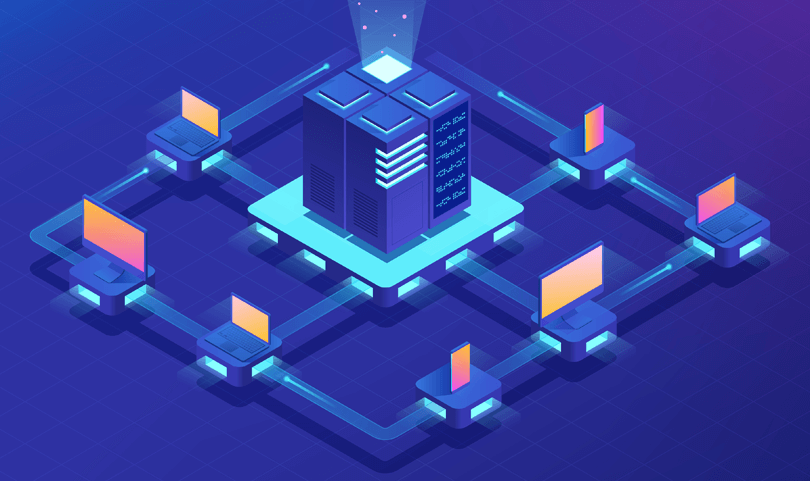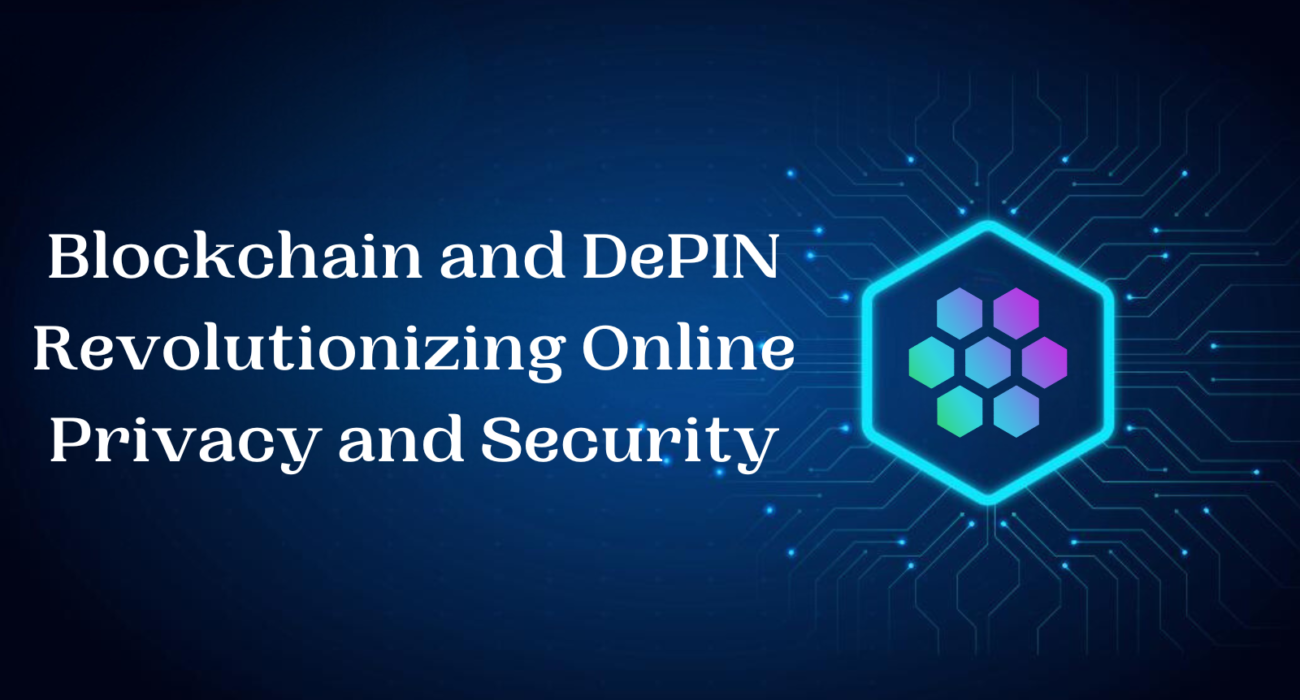In today’s digital age, where the internet is integral to our daily lives, the importance of online privacy and security cannot be overstated. With cyber threats on the rise and personal data increasingly vulnerable to breaches, the need for robust solutions has never been more urgent. This is where blockchain technology and Decentralized Physical Infrastructure Networks (DePIN) come into play, offering revolutionary ways to safeguard our digital presence. In this blog, we will explore how “Blockchain and DePIN Revolutionizing Online Privacy and Security” by providing decentralized, secure, and transparent systems that are set to reshape the digital landscape.
The Evolution of Online Privacy and Security
Before diving into how blockchain and DePIN are transforming online privacy and security, it’s essential to understand the current landscape. Over the years, the internet has evolved from a simple network for sharing information to a complex ecosystem where data is the new currency. Unfortunately, this evolution has also led to an increase in cyber threats, including data breaches, identity theft, and hacking incidents. Traditional security measures, such as firewalls and encryption, are no longer sufficient to protect against these sophisticated threats.
The Rise of Cyber Threats
Cyber threats have become more sophisticated, with attackers using advanced techniques to exploit vulnerabilities in online systems. Data breaches, in particular, have become alarmingly common, with personal information such as social security numbers, credit card details, and passwords being stolen and sold on the dark web. The implications of such breaches are severe, leading to financial loss, identity theft, and even reputational damage.
Limitations of Traditional Security Measures
Traditional security measures, while still necessary, are increasingly proving to be inadequate in the face of modern cyber threats. Firewalls, antivirus software, and encryption are often reactive rather than proactive, meaning they only respond to threats after they have occurred. Moreover, these measures are typically centralized, making them vulnerable to single points of failure. If a hacker successfully breaches a centralized system, they can gain access to vast amounts of sensitive data.
Blockchain Technology: A Game-Changer for Privacy and Security
Blockchain technology has emerged as a powerful tool for enhancing online privacy and security. By design, blockchain is a decentralized and distributed ledger that records transactions across multiple computers in a way that ensures the data is secure, transparent, and immutable. This decentralized nature is at the heart of why blockchain is so effective at protecting data.
How Blockchain Works
At its core, blockchain is a series of blocks, each containing a list of transactions. These blocks are linked together in a chain, with each block containing a cryptographic hash of the previous block, a timestamp, and transaction data. Once a block is added to the chain, it cannot be altered, making the data within it tamper-proof. This immutability is a key feature that ensures the integrity and security of data stored on the blockchain.
The Role of Decentralization
Decentralization is a fundamental aspect of blockchain technology. Unlike traditional systems, which rely on a central authority to manage and secure data, blockchain operates on a peer-to-peer network. This means that no single entity has control over the entire network, reducing the risk of a single point of failure. In the context of online privacy and security, decentralization ensures that data is not stored in a vulnerable central repository but is instead distributed across the network.
Enhancing Data Privacy with Blockchain
Blockchain’s decentralized nature also enhances data privacy. In a traditional system, personal data is often stored in centralized databases that are vulnerable to breaches. With blockchain, data can be stored in an encrypted form on the blockchain, ensuring that only authorized parties can access it. Moreover, because the data is distributed across the network, it is much more difficult for hackers to compromise the entire system.
DePIN: The Next Step in Decentralized Security
While blockchain provides a solid foundation for online privacy and security, DePIN takes it a step further by integrating physical infrastructure into the decentralized network. DePIN, or Decentralized Physical Infrastructure Networks, is a concept that combines blockchain technology with physical assets, such as servers, sensors, and IoT devices, to create a more secure and resilient network.
What is DePIN?
DePIN is a new and innovative approach to building decentralized networks that extend beyond the digital realm into the physical world. It leverages blockchain technology to create a network of interconnected devices and infrastructure that operate autonomously and securely. These devices can include anything from servers and data centers to sensors and IoT devices, all working together to provide a secure and decentralized network.
How DePIN Works
DePIN operates on the same principles as blockchain, with decentralization, transparency, and security being the core tenets. However, DePIN goes a step further by integrating physical infrastructure into the network. For example, a DePIN network could consist of a series of interconnected data centers, each storing encrypted data on the blockchain. These data centers would be geographically distributed, reducing the risk of a single point of failure and ensuring that the network remains secure and resilient.
Enhancing Security with DePIN
By integrating physical infrastructure into the decentralized network, DePIN significantly enhances security. In a traditional centralized network, if a hacker gains access to the central server, they can potentially compromise the entire system. With DePIN, however, the network is distributed across multiple physical locations, making it much more difficult for a hacker to gain control. Additionally, because the data is stored on the blockchain, it is protected by the same cryptographic principles that make blockchain so secure.
Join the future of secure digital transactions by investing in SRP Token, a key player in the Blockchain and DePIN Network.
The Synergy Between Blockchain and DePIN
The combination of blockchain and DePIN offers a powerful solution for enhancing online privacy and security. While blockchain provides the decentralized and immutable foundation, DePIN adds an extra layer of security by integrating physical infrastructure into the network. Together, they create a system that is not only secure but also resilient, transparent, and scalable.
Real-World Applications of Blockchain and DePIN
There are already several real-world applications of blockchain and DePIN that are revolutionizing online privacy and security. For example, in the field of data storage, companies are using blockchain and DePIN to create decentralized storage networks that are more secure and resilient than traditional centralized systems. These networks use blockchain to ensure the integrity of the data and DePIN to distribute the storage across multiple physical locations, reducing the risk of data loss or breach.
The Future of Blockchain and DePIN
As more and more companies recognize the potential of blockchain and DePIN, we can expect to see these technologies playing an increasingly important role in online privacy and security. From securing financial transactions to protecting personal data, blockchain and DePIN have the potential to revolutionize the way we think about digital security.
Benefits of Blockchain and DePIN for Online Privacy and Security
The synergy between blockchain and DePIN offers several key benefits for online privacy and security. These include enhanced data protection, reduced risk of data breaches, increased transparency, and greater resilience against cyber threats. Let’s take a closer look at these benefits.
Enhanced Data Protection
One of the most significant benefits of blockchain and DePIN is enhanced data protection. By storing data on a decentralized network, these technologies ensure that personal information is protected from unauthorized access. Additionally, because the data is encrypted and stored on the blockchain, it is much more difficult for hackers to compromise.
Reduced Risk of Data Breaches
Traditional centralized systems are vulnerable to data breaches, as hackers only need to gain access to the central server to compromise the entire system. With blockchain and DePIN, however, the data is distributed across multiple locations, reducing the risk of a single point of failure. This makes it much more difficult for hackers to breach the system and steal sensitive information.
Increased Transparency
Transparency is another key benefit of blockchain and DePIN. Because the data is stored on a public ledger, it is visible to all participants in the network. This transparency ensures that all transactions are recorded and can be audited, reducing the risk of fraud and ensuring the integrity of the data.
Greater Resilience Against Cyber Threats
Finally, blockchain and DePIN offer greater resilience against cyber threats. By distributing the network across multiple physical locations and securing the data with cryptographic principles, these technologies create a system that is much more difficult to compromise. This resilience ensures that the network remains secure, even in the face of sophisticated cyber attacks.
Overcoming Challenges in Implementing Blockchain and DePIN
While blockchain and DePIN offer significant benefits for online privacy and security, there are also challenges associated with implementing these technologies. These challenges include scalability, regulatory issues, and the complexity of integrating physical infrastructure into the decentralized network.
Scalability
One of the main challenges of implementing blockchain and DePIN is scalability. As the network grows, it becomes increasingly difficult to manage and maintain. This is particularly true for DePIN, where physical infrastructure needs to be integrated into the network.
Regulatory Issues
Regulatory issues are another challenge facing blockchain and DePIN. Because these technologies operate on a decentralized network, they often fall outside the scope of traditional regulatory frameworks. This can create legal and compliance challenges, particularly in industries such as finance. However, as governments and regulatory bodies become more familiar with blockchain and DePIN, we can expect to see more clear and consistent regulations being developed.
Complexity of Integration
Integrating physical infrastructure into a decentralized network is a complex task that requires careful planning and execution. This complexity can be a barrier to entry for companies looking to implement DePIN. However, as more companies successfully deploy DePIN networks, we can expect to see best practices and standards emerging that will help simplify the process.
Conclusion
In conclusion, “Blockchain and DePIN Revolutionizing Online Privacy and Security” by providing a decentralized, secure, and transparent system that is set to reshape the digital landscape. As cyber threats continue to evolve, the need for robust solutions will only increase. Blockchain and DePIN offer a powerful combination of technologies that can enhance online privacy and security, protect personal data, and create a more resilient and trustworthy digital ecosystem.
As we look to the future of “Blockchain and DePIN Revolutionizing Online Privacy and Security”, it is clear that blockchain and DePIN will play an increasingly important role in securing our online lives. Whether it is protecting financial transactions, safeguarding personal information, or ensuring the integrity of digital communications, these technologies are poised to revolutionize the way we think about online privacy and security. Investing in these technologies now will not only help protect our digital future but also pave the way for a more secure and private online world.

 China
China Russia
Russia India
India










12 Comments
You could certainly see your skills in the work you write. The arena hopes for more passionate writers like you who are
not afraid to mention how they believe. All the time follow your heart.